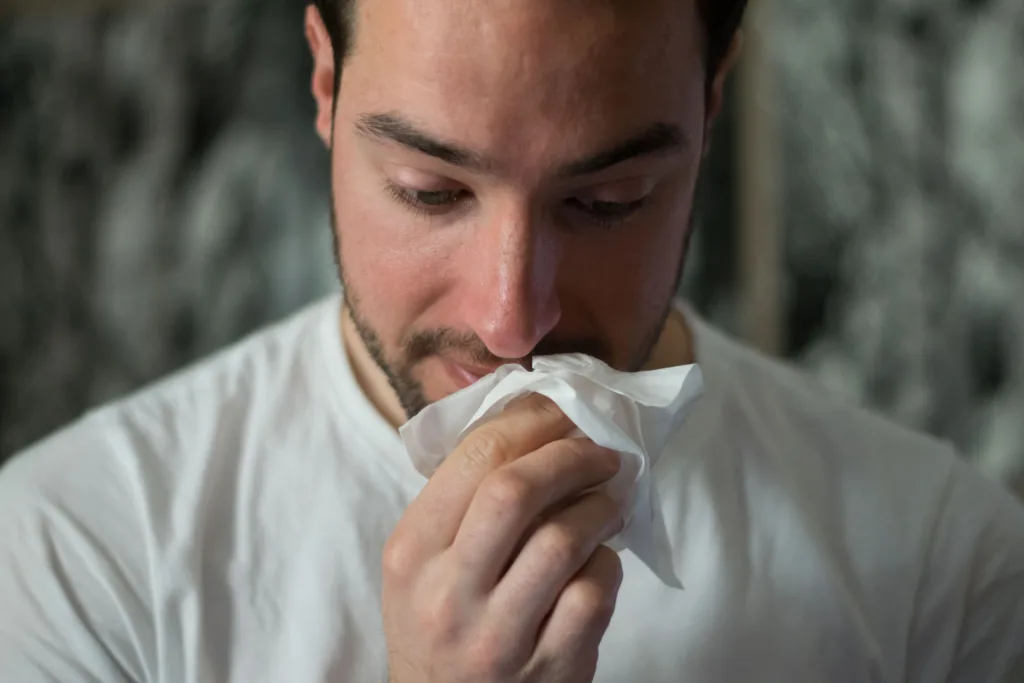Calories are units of energy that we consume from food and drink to fuel our bodies. The amount of calories we need each day depends on our age, gender, weight, and activity level. Our basal metabolic rate (BMR) is the number of calories our body burns at rest to maintain basic bodily functions, such as breathing and circulating blood.
One question that often arises is whether we burn more calories when we’re sick. The answer is yes, but it depends on the type and severity of illness. Fever is a common symptom of many infections, and it occurs when the body’s immune system raises its temperature to fight off the invaders. This increase in body temperature raises our metabolism and results in more calories burned.
For evry degree of temperature rise, our energy demand increases further. So, if you have a fever of 101.3 °F, which is 2.7 °F above the standard human body temperature of 98.6 °F, your BMR would go up 21% compared to usual. If your usual BMR is 1,640 calories per day, you would burn an extra 344 calories per day because of this fever!
However, it’s important to note that not all illnesses result in increased calorie burn. In fact, some illnesses can actually decrease our metabolism and cause us to burn fewer calories. For example, when we’re bedridden or sedentary due to illness, our BMR may decrease because we’re not moving around as much.
Additionally, certain medications used to treat illnesses can have an impact on our metabolism and calorie burn. For example, some antidepressants and antipsychotics can cause weight gain by increasing appetite and slowing metabolism.
The answer to whether we burn more calories when sick is yes, but it depends on the type and severity of illness. Fever is a common symptom that can increase our metabolism and calorie burn, but other factors such as bedrest and medication use can decrease our calorie burn. As always, it’s important to listen to our bodies and eat a balanced diet to support our overall health and well-being.
The Impact of Having a Cold on Calorie Burning
Yes, you do tend to burn more calories when you have a cold. This is because your body’s immune system is working hard to fight off the viral or bacterial infection causing the cold. When the body is fighting an infection, it increases its metabolic rate, which means that it burns more calories than it would at rest. Additionally, fevers, which are common with colds, raise the body’s temperature, further increasing the metabolic rate and calorie burn. However, it’s important to note that the increase in calorie burn is usally relatively small and is not a reliable or healthy way to try to lose weight. The most effective and sustainable way to lose weight is through a balanced diet and regular exercise.

Calorie Expenditure During Illness
When you’re sick, your body is working harder than usual to fight off the infection, which can actually increase your calorie burn. The exact number of calories you burn while sick can vary depending on factors such as your age, weight, and the severity of your illness. However, research suggests that for evey degree Fahrenheit above your normal body temperature, your basal metabolic rate (BMR) increases by around 7%.
For example, if your normal BMR is 1,640 calories per day, and you have a fever of 101.3 °F (2.7 °F above the standard human body temperature of 98.6 °F), your BMR would increase by 21%. This means that you could burn an additional 344 calories per day because of your fever.
It’s worth noting that while you may burn more calories while sick, it’s important to focus on rest and recovery rather than trying to lose weight. Your body needs nourishment and energy to fight off the illness, so it’s important to listen to your body and give it the fuel it needs to heal. Additionally, if you’re experiencing prolonged or severe symptoms, it’s always a good idea to consult with a healthcare professional to ensure that you’re taking care of your body in the best way possible.
The Impact of Colds on Weight Loss
It is possibe to lose weight faster when you have a cold, but it’s not necessarily a good thing. When you have a cold, your body is expending more energy to fight off the infection, which can cause a temporary increase in your metabolic rate. Additionally, you may experience a loss of appetite, which can lead to a decrease in your caloric intake. These factors combined can lead to a slight weight loss during the course of the illness.
However, it’s important to note that any weight loss during a cold is likely due to a decrease in fluids and overall caloric intake, and not necessarily a loss of body fat. Additionally, if your cold symptoms are severe, you may be losing weight due to dehydration and not eating enough, which can be dangerous to your health.
It’s important to focus on getting proper nutrition and hydration while you are sick, rather than trying to lose weight. This will help your body recover more quickly and prevent complications from the illness. If you are concerned about your weight loss during a cold, it’s best to consult with a healthcare professional.
The Effects of Being Sick on Fat Loss
When you are sick, your body’s metabolism can change, and you may lose weight due to a decrease in appetite, dehydration, or the body’s immune response. However, the weight you lose is usually the result of losing water weight rather than fat. Water weight is the weight of the water in your body, which can fluctuate depending on how much water you consume and how much you sweat or urinate. When you are sick, your body may become dehydrated, which can caue you to lose water weight.
Fat loss, on the other hand, requires a calorie deficit, meaning you need to burn more calories than you consume. Being sick may cause a temporary decrease in appetite or activity level, but it is not a sustainable or healthy way to lose fat. In fact, losing weight too quickly or while being sick can lead to muscle loss and nutrient deficiencies.
Therefore, if you are looking to lose fat, it’s important to focus on a balanced diet and regular exercise routine rather than relying on being sick to lose weight. Additionally, if you are experiencing unexplained weight loss or prolonged sickness, it’s essential to seek medical attention to rule out any underlying health conditions.
Eating More When Sick: Is It Beneficial?
Yes, it’s important to eat well when you’re sick. When you’re sick, your body needs extra nutrients to help boost your immune system and fight off the illness. Not eating enough can inhibit your body’s ability to heal itself. So, it’s important to continue to eat a well-balanced diet, even when you’re not feeling well. While you might crave junk foods wile you’re sick, they won’t help your body heal either. Instead, focus on eating nutrient-dense foods like fruits, vegetables, whole grains, lean proteins, and healthy fats. Additionally, staying hydrated is also important when you’re sick, so be sure to drink plenty of fluids like water, tea, and broth. Overall, eating well when you’re sick can help support your body’s natural healing processes and speed up your recovery time.

Conclusion
In conclusion, calories play a vital role in our daily lives as they provide us with the energy we need to carry out various activities. It is important to understand that consuming too many calories can lead to weight gain and health problems, while consuming too few calories can lead to malnourishment and other health complications. It is crucial to maintain a balanced and healthy diet, consisting of nutrient-dense foods that provide the riht amount of calories for our bodies. Additionally, regular exercise and physical activity can help burn excess calories and maintain a healthy weight. Understanding the importance of calories and how they affect our bodies is crucial for maintaining a healthy and happy lifestyle.
